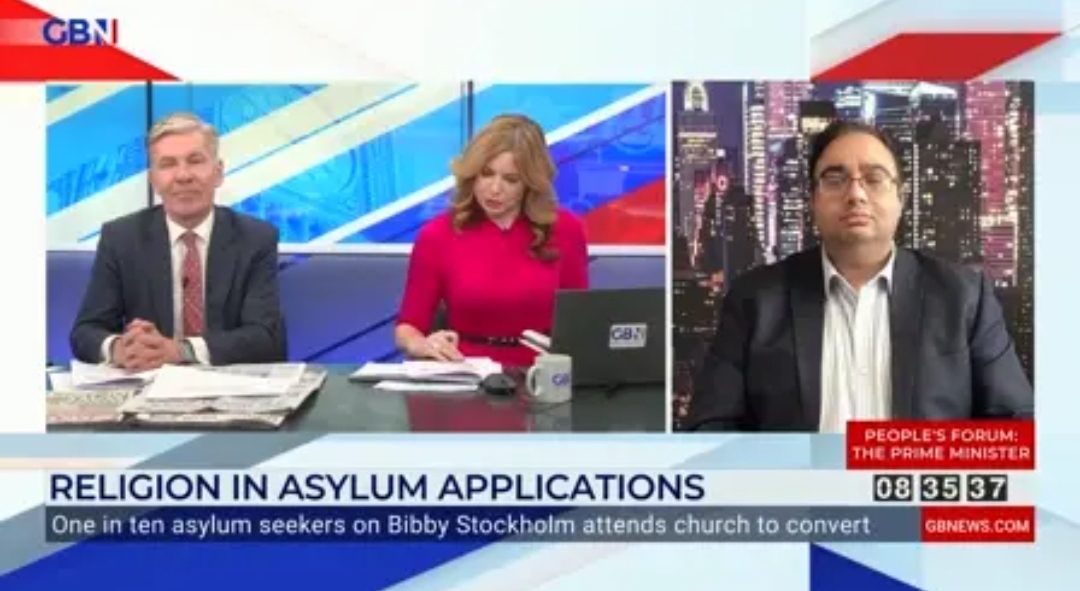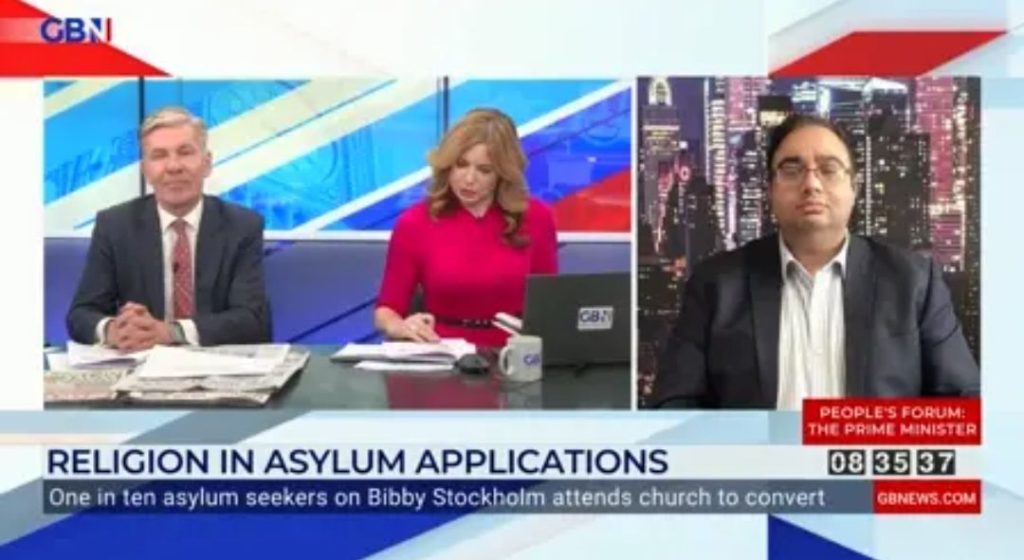
In a recent interview with GB News, Human Rights Lawyer Shoaib Khan staunchly defended asylum seekers who choose to convert to Christianity, asserting that it is not a matter for investigation unless there is suspicion of fraud or deception.

The debate surrounding asylum seekers and their religious conversions has been a contentious issue, with questions raised about the authenticity of these conversions and whether they are being used as a means to bolster asylum claims. However, Khan emphasized that it is not the role of the legal system to question or scrutinize an individual’s religious beliefs unless there is concrete evidence of wrongdoing.
According to GB News, “Like the Archbishop said, it’s the Home Office’s role. If you think someone is lying or defrauding the system. It’s the Home Office’s role in that particular case to stop that,” Khan stated during the interview. His comments come amidst a backdrop of increasing scrutiny on the asylum process and concerns over the treatment of migrants seeking refuge in the UK.
The issue of religious conversion has become particularly contentious, with some critics suggesting that individuals may falsely claim to have converted to Christianity in order to improve their chances of being granted asylum.
However, Khan emphasized that such suspicions should be addressed by the appropriate authorities, rather than being used as a basis for discrimination or persecution against asylum seekers.
“Everyone has the right to freedom of religion and belief, and that includes asylum seekers,” Khan asserted. “It is not for us to question the sincerity of someone’s faith. If there are concerns about fraud or deception, then those concerns should be investigated by the relevant authorities. But we should not use religion as a tool to discriminate against or marginalize vulnerable individuals.”
His comments echo those made by religious leaders, including Archbishop of Canterbury Justin Welby, who has previously called for compassion and understanding towards asylum seekers, regardless of their religious beliefs.
The issue of religious conversion among asylum seekers is likely to remain a contentious topic, with ongoing debates about the balance between safeguarding the integrity of the asylum system and respecting the rights and dignity of individuals fleeing persecution and violence.
As the conversation continues, it is imperative that the voices of asylum seekers themselves are heard and that their rights are upheld throughout the asylum process. In the words of Khan, “We must remember that these are individuals who have fled their homes in search of safety and protection. We owe it to them to treat them with dignity, compassion, and respect.”




